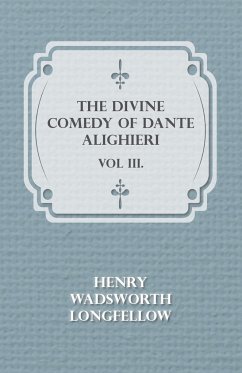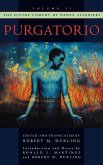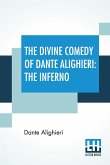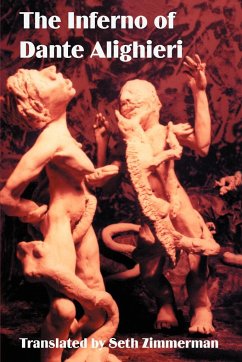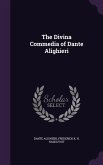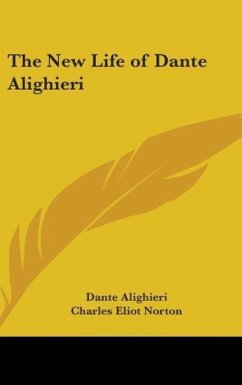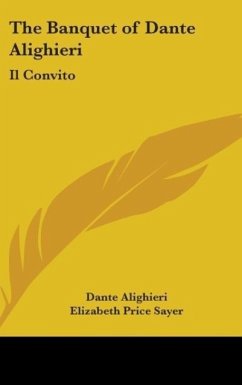This vintage book is the third volume of Henry Wadsworth Longfellow¿s 1867 translation of Dante Alighieri¿s ¿The Divine Comedy¿. ¿The Divine Comedy¿ is an epic poem written by Dante Alighieri between 1308 and 1320. Arguably the most important work in the Italian language, it is widely believed to number amongst the greatest works of literature ever produced. This volume constitutes a must-read for serious lovers of poetry, and would make for a fantastic addition to any bookshelf. Henry Wadsworth Longfellow (1807¿1882) was an American poet and member of the Fireside Poets. Many classic books such as this are becoming increasingly rare and expensive. We are republishing this volume now in an affordable, modern, high-quality edition complete with a specially commissioned new biography of the author.

